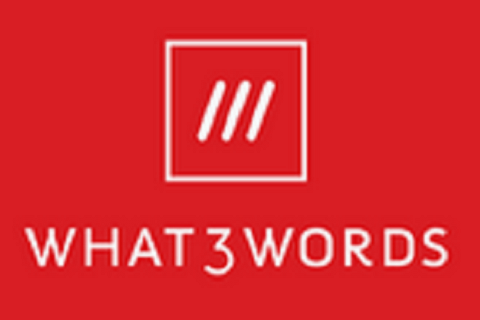How to solve a problem you didn’t know you had in a way you don’t understand!
What3Words keeps popping up in social media feeds and in various magazines as the simple way to talk about location.
This system encodes geographic coordinates into three everyday words, the theory being that remembering three words is easier than a long string of numbers and letters.
The What3Words systems gives every 3m square in the world a unique 3 word address that will never change. Whether it is your location in the middle of a forest in the North Highlands of Scotland or the exact location of the entrance to your work site, every 3 metre square has three words which are unique to the location.
In the North of Scotland postcodes are notoriously unreliable as they cover such a large geographical area. The British National Grid works well but using 12 characters is also not ideal.
The encoding used in What3Words is permanently fixed meaning that the words will never change, and it uses a fixed algorithm rather than a large database.
Unfortunately, you simply cannot type the words directly into Google but instead you must use the What3Words App and then navigate to that destination within the App. So, if someone sends you the three words to identify a site access or another location, it is meaningless until you go to the What3Words App or their website.
You do not need either a phone signal or data signal to work out the 3-word address, however, you need to have downloaded the App before going offline.
As the three words were effectively randomly generated across the world for each 3m square, similar sounding words could be hundreds or thousands of miles apart. If you had to use them in an emergency, it would be vitally important to remember them exactly. When on the phone in an emergency it is likely that you would phonetically spell the word, but it may be simpler and easier to stick with British National Grid.
Although you do not need to be online to generate the address you do need an accurate GPS fix. It would be reasonable to assume that in the locations that we often find ourselves for our work, that the accuracy could be poor (in the forest canopy or on steep ground). Therefore, it would be likely that the App would need some interpretation by the user to identify the exact location. However, this would be the same for any other method using GPS.
If the emergency services do not use it then the three random words become senseless. One of our managers recently called both the Scottish Fire and Rescue Service and the local Scottish Ambulance Service to ask if they use it.
Both ambulance and fire control were aware of it but is not part of their current system although they saw a benefit in its use.
So, where does that leave us? In the UK we are fortunate to have the British National Grid and this, if used correctly, is perfectly fit for purpose.
What3Words can be viewed as improving a system which already works very well. However, with new technology What3Words may be of use. So, download the App and have a go when you are out and about and become familiar with this alternative way to talk about location because it is a useful additional tool to have.
More information on What3Words is found here;



